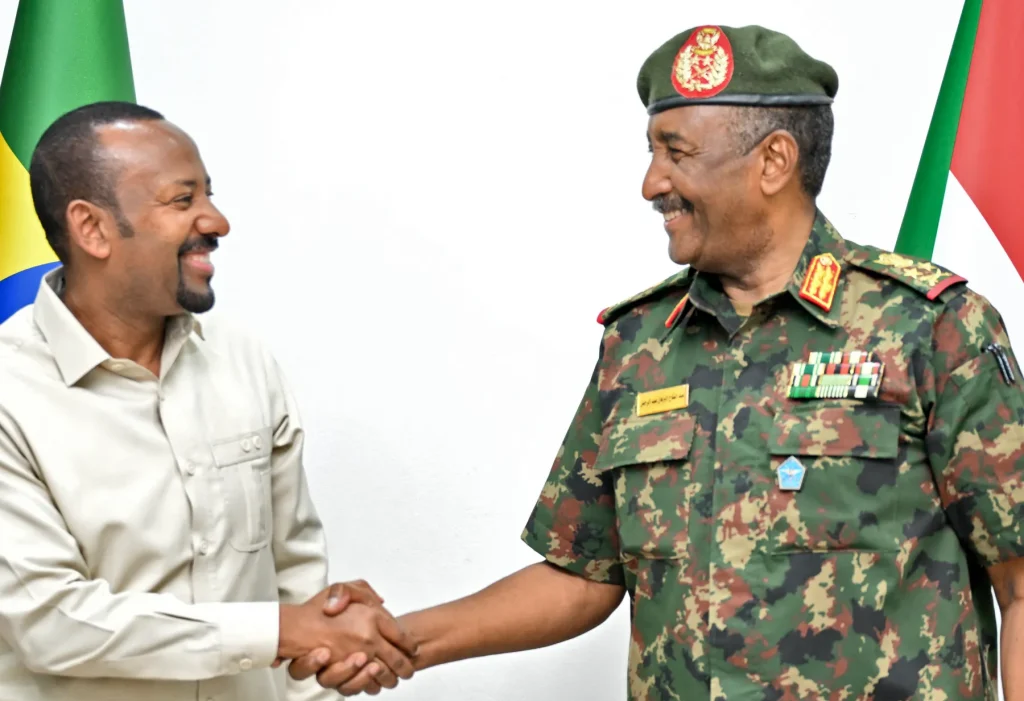Ethiopian Prime Minister Abiy Ahmed has conducted the highest-level state visit to Sudan since the war began between the army and the paramilitary RSF in April 2023.
In Port Sudan’s Red Sea coastal town, Ethiopian Prime Minister Abiy Ahmed met with Sudan’s armed forces chief, General Abdel Fattah al-Burhan. This meeting is part of efforts by regional and global powers to end the ongoing conflict between the Sudanese military and the paramilitary Rapid Support Forces (RSF).
Sudan has been embroiled in conflict since April 2023, when clashes erupted between forces loyal to General al-Burhan and the RSF, led by his former deputy, Mohamed Hamdan Dagalo, known as Hemedti.
Ahmed’s visit to Port Sudan, where the army-aligned government is based, marks the highest-level state visit since the conflict began. The war has threatened regional stability, displaced millions, and created one of the world’s largest humanitarian crises.

The Sudan Sovereign Council issued a statement calling the meeting “a testament to the depth of relations” between Sudan and Ethiopia. Ahmed’s press secretary told journalists that the Ethiopian leader’s visit was to “achieve peace and security” in Sudan.
During a closed-door meeting, General al-Burhan briefed Ahmed on what he described as the “crimes and atrocities” committed by the RSF in its “rebellion against the state and its institutions.” Both the Sudanese military and the RSF have been accused of committing war crimes by United Nations officials and international rights groups.
Ahmed’s visit may signify potential talks to be hosted in Uganda. The visit could also be a positive sign for the Sudanese military leaders, who fear being isolated by the international community.
General al-Burhan’s camp has generally avoided East African mediation efforts, accusing regional leaders of siding with the RSF. In a recent interview with Al Jazeera, al-Burhan remarked that the war had revealed who were “enemies” and “friends” of the Sudanese people and state. He criticized countries that remain silent or support the RSF’s actions, labelling them as enemies, while those who support the Sudanese state and its institutions are considered friends.
The United Nations refugee agency (UNHCR) estimates that approximately 10 million people have been forcibly displaced in Sudan since the conflict began. Around 7.7 million are internally displaced, while more than two million have fled to neighbouring countries, including Egypt, Chad, the Central African Republic, and Ethiopia.
The Integrated Food Security Phase Classification (IPC), the UN’s hunger monitoring system, reported that Sudan is experiencing its worst food crisis in history. More than 755,000 people are facing “catastrophe” levels of hunger in 10 out of 18 states, marking the most severe level of extreme hunger.


